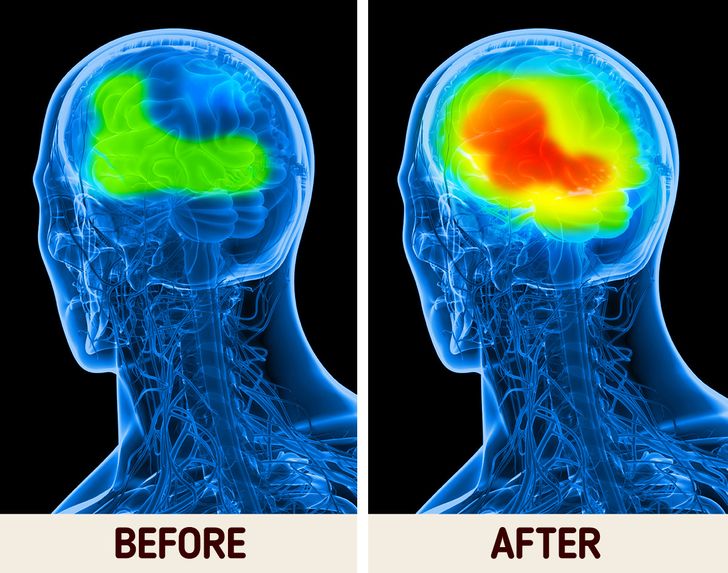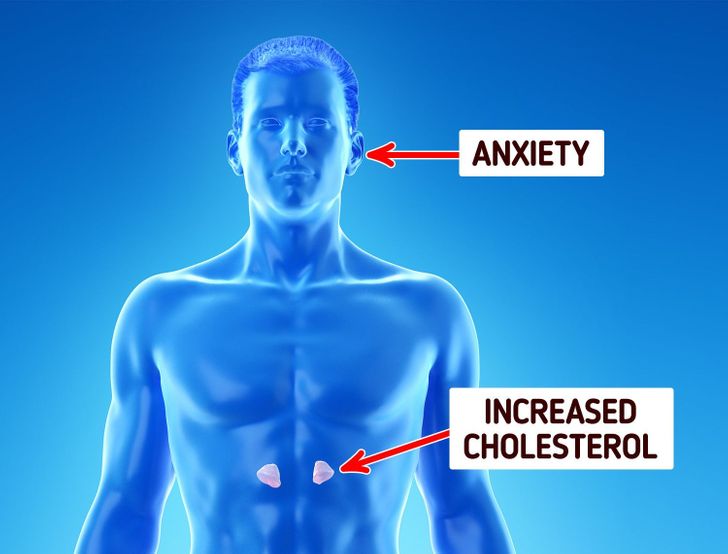Skipping breakfast is more than just a missed meal—it can trigger a series of changes in your body that affect your overall health and well-being. In this post, we delve deep into how your body reacts when you start your day without breakfast, explore the science behind these effects, and share expert insights on why a balanced morning meal is essential for weight management, mental clarity, and even reversing the aging process. With the rising popularity of intermittent fasting and evolving dietary trends, understanding these impacts is crucial for anyone looking to optimize their health and maximize energy levels throughout the day.
A healthy breakfast kick-starts your metabolism and fuels your body for the day ahead. However, skipping breakfast has become a common trend—sometimes influenced by busy schedules, dieting fads, or the misconception that skipping a meal aids in weight loss. But what really happens inside your body when you consistently skip breakfast? Let’s break down the major impacts with scientifically backed insights and practical advice.
Skipping Breakfast Can Lead to Weight Gain and Metabolic Disruptions

Skipping breakfast may seem like a simple way to cut calories, but research suggests that this habit can backfire by disrupting your body’s metabolism. When you forgo your morning meal, your body enters a fasting state that triggers the release of hunger hormones such as ghrelin, which can lead to increased appetite later in the day. This compensatory overeating often results in weight gain rather than weight loss.
Studies from reputable institutions like Mayo Clinic and Harvard Health Publishing indicate that missing breakfast is linked with insulin resistance and a higher risk of type 2 diabetes. The body’s reduced insulin sensitivity means that it struggles to effectively process blood sugar, leading to fat storage and metabolic imbalances.
Incorporating a nutritious breakfast can help stabilize blood sugar levels and maintain steady energy. High-protein foods, fiber-rich cereals, and healthy fats not only promote fullness but also kick-start your metabolism—essential for those looking to lose weight or maintain a lean physique.
Skipping Breakfast and Its Negative Impact on Your Mood and Mental Health

Your mood is intricately linked to your nutritional status. When you skip breakfast, your brain is deprived of essential nutrients, which can lead to irritability, stress, and even symptoms of anxiety and depression. A well-balanced breakfast provides the necessary carbohydrates, proteins, and fats that are vital for neurotransmitter production—chemicals like serotonin that regulate mood and emotions.
According to WebMD, individuals who eat a wholesome breakfast experience more stable moods and enhanced cognitive performance throughout the day. The lack of morning nourishment not only disrupts your body’s chemical balance but may also affect your circadian rhythm, which governs your sleep-wake cycle. As a result, you might find yourself feeling low, unfocused, and overwhelmed as the day progresses.
For optimal mental health, consider starting your day with foods rich in omega-3 fatty acids, antioxidants, and complex carbohydrates.
Afternoon Energy Crash: Why Skipping Breakfast Can Leave You Exhausted

Have you ever noticed that the absence of breakfast often leads to an energy slump during the day? Many people report feeling particularly tired between 12 p.m. and 4 p.m., a period commonly associated with a mid-day crash. When you skip breakfast, your body lacks the fuel it needs to sustain energy levels, causing blood sugar to plummet and leading to fatigue, irritability, and diminished concentration.
Nutrition experts suggest that a balanced breakfast rich in whole grains, lean proteins, and fruits can provide a steady release of energy. This balanced intake ensures that your blood sugar remains stable, preventing the abrupt highs and lows that can trigger an afternoon slump. Additionally, a well-planned breakfast primes your metabolism to utilize stored energy more efficiently, reducing the reliance on caffeine or sugary snacks that offer only temporary relief.
Credible resources, including Harvard Health Publishing, emphasize that establishing a consistent breakfast habit is key to preventing that dreaded mid-day crash.
Cognitive Benefits: How a Healthy Breakfast Can Sharpen Your Brain

It might seem counterintuitive, but skipping breakfast may have a detrimental impact on your cognitive performance. A nourishing breakfast supplies glucose—the brain’s primary source of energy—which is essential for functions like memory, concentration, and overall mental agility. When you skip this crucial meal, your brain may struggle to perform at its best, leading to difficulties in focus, problem-solving, and even creativity.
Research indicates that individuals who consistently eat breakfast perform better on tasks that require sustained attention and short-term memory. According to studies referenced by the National Institutes of Health, a healthy breakfast can enhance cognitive functions by providing key nutrients such as B vitamins, antioxidants, and omega-3 fatty acids. These nutrients contribute not only to improved memory retention but also to a reduced risk of neurodegenerative diseases over time.
Reversing Aging: The Role of Breakfast in Slowing Down the Aging Process

A surprising benefit of maintaining a healthy breakfast routine is its potential to slow down the aging process. While aging is a natural phenomenon, emerging research shows that nutritional strategies can mitigate some of its effects. Breakfast foods rich in antioxidants, vitamins, and minerals can combat oxidative stress—a major contributor to premature aging.
Oxidative stress occurs when free radicals in the body outnumber antioxidants, leading to cellular damage. By consuming antioxidant-rich fruits, vegetables, and whole grains at breakfast, you help protect your cells from damage. This can lead to improvements in skin health, a reduction in inflammation, and an overall enhancement in physical vitality. Reputable sources like Harvard Health Publishing suggest that diets emphasizing whole, unprocessed foods can significantly impact aging markers.
Dizziness and Headaches: The Unintended Effects of Skipping Breakfast

One of the more immediate consequences of skipping breakfast is the onset of dizziness and headaches. Without a steady supply of energy, your blood sugar levels may fall too low, triggering symptoms like light-headedness, blurred vision, and even severe headaches. These symptoms are your body’s natural warning signals that it isn’t receiving the nutrients needed for optimal function.
Medical experts from Mayo Clinic point out that consistent drops in blood sugar can lead to not only headaches but also a range of other neurological symptoms. Dehydration, often exacerbated by skipping a meal that normally includes a glass of water or juice, can further compound these issues. For individuals prone to migraines, these fluctuations can be particularly problematic, potentially triggering more frequent and intense episodes.
For readers seeking immediate relief or long-term solutions, including terms like “prevent headaches naturally,” “dizzy no breakfast,” and “low blood sugar solutions” will enhance SEO relevance. Encouraging a balanced breakfast can help stabilize blood sugar levels and reduce the likelihood of these uncomfortable symptoms.
Stress Hormones and Cortisol: How Skipping Breakfast Can Affect Your Body

Cortisol, commonly known as the “stress hormone,” plays a critical role in your body’s response to stress. When you skip breakfast, your body may produce higher levels of cortisol as a compensatory mechanism to mobilize energy. Elevated cortisol levels over time can lead to a range of health issues, including weight gain (especially around the midsection), a weakened immune system, and even chronic fatigue.
Research highlighted by Healthline shows that maintaining a balanced breakfast helps regulate cortisol production. A meal that combines complex carbohydrates, lean proteins, and healthy fats can buffer the cortisol spike, keeping your stress levels in check. This balance is particularly important for individuals managing stress through diet, exercise, or other lifestyle changes.
Conclusion: Embrace a Healthy Breakfast Routine for Long-Term Wellness
In summary, skipping breakfast can set off a cascade of effects that impact nearly every aspect of your health—from weight management and energy levels to cognitive function and aging. A nutritious breakfast fuels your body and mind, stabilizes blood sugar levels, and helps regulate hormones such as cortisol. Whether your goal is to lose weight, boost productivity, or simply feel more energetic throughout the day, establishing a healthy morning routine is essential.
By incorporating nutrient-dense foods like whole grains, lean proteins, fruits, and healthy fats into your breakfast, you can avoid the pitfalls associated with skipping this vital meal. Embracing a consistent, balanced breakfast not only supports immediate energy needs but also contributes to long-term health benefits, including improved mood, cognitive sharpness, and even anti-aging effects.
For those interested in exploring further, numerous resources such as Mayo Clinic, Harvard Health Publishing, and Healthline provide additional insights and research-backed advice on the importance of breakfast in maintaining a healthy lifestyle. Consider experimenting with different breakfast recipes and meal plans to find what works best for your body and lifestyle.
Taking control of your morning routine by choosing a healthy breakfast is one of the simplest yet most effective ways to enhance your overall well-being. If you’ve been skipping breakfast in hopes of saving time or calories, remember that the long-term consequences—such as weight gain, mood fluctuations, and decreased cognitive performance—might outweigh any short-term benefits. Prioritizing a well-balanced breakfast can be the cornerstone of your healthy living strategy, ensuring you start each day with the energy, focus, and vitality you deserve.
Embrace the power of a good breakfast and invest in your health today. Your body, mind, and future self will thank you for the change.









Leave a Reply